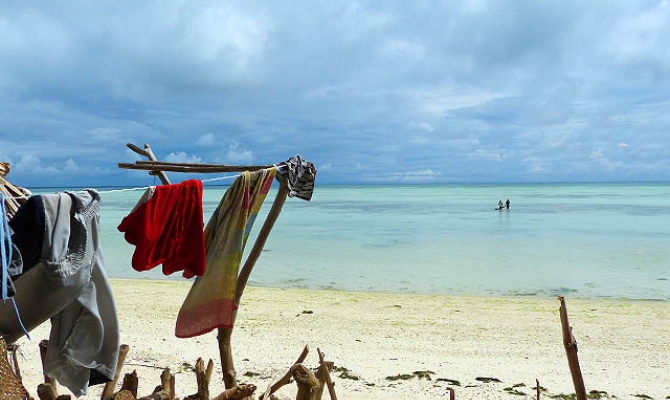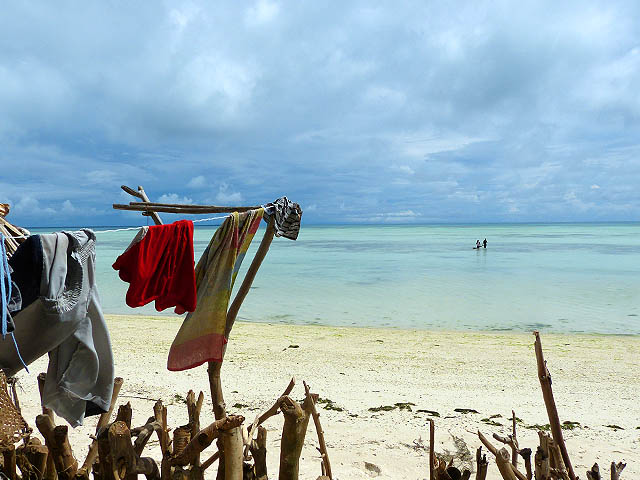
Climate Change Resilience
Each year natural and climate change induced disasters displace tens of millions of people across the globe, mostly within their own country but there have been circumstances when people displaced by disasters have had to seek shelter by crossing international borders. Human mobility and cross-border displacement is recognised as a keyhumanitarian issue in this day in age.
The Nansen Initiative is a state-led, bottom-up consultative processwhich has developed the Draft Protection Agenda to build consensus on principles and elements to address the needs of people displaced across international borders in the context of disasters, and the effects of climate change.
In July the Nansen Initiative held its third regional consultation for the Pacific on the Draft Protection Agenda. Ten Pacific island countries (Cook Islands, Fiji, Kiribati, Niue, Palau, Samoa, Tonga, Tuvalu, Marshall Islands, and Papua New Guinea) participated in the event following the conclusion of the World Humanitarian Summit regional consultation for the Pacific.
The meeting was led by an overview of the draft Protection Agenda by the Envoy of the Chairmanship of the Nansen Initiative, Professor Walter Kaelin. It was followed by a panel of Pacific experts from Fiji, Kiribati, Papua New Guinea, and the University of New South Wales.

Mr Akapusi Tuifagalele shared their experiences from the government of Fiji in developing national guidelines on planned relocation. Tuifagalele said 'Fiji's coastal and delta communities are currently vulnerable to the changing weather patterns therefore Fiji identified the need to establish guidelines on planned relocation as a national policy to assist affected people needing to relocate as well as working with potential host communities in welcoming relocated persons'. A key message emphasised in his presentation was the importance of an all inclusive, participatory and transparent consultation and communication amongst the affected and host communities and relevant governmentand non-government agencies is critical when tackling the issue.
Director of International Refugee Law at the University of New South Wales, Professor Jane McAdams supported Fiji's example on the importance of consultation as shepresented her perspective on the concept of planned relocation in the draft Protect Agenda, she highlights 'planned relocation in the draft Protection Agenda maybe relevant in three circumstances, as a preventative measure in a country to reduce the risk of future displacement, it could assist people who have been displaced following a disaster, and lastly in the exceptional case relocation can facilitate movement of people when habitation in a country is no longer viable, however this is considered in the Pacific as an option of last resort.
Mr.Michael Foon from the Kiribati government presented on its national Migration with Dignity Framework saying 'Over the years government has emphasised, that it would be irresponsible for government not to consider the welfare of its citizens and given the impacts of climate change it is clear that in the future we will be faced with mass relocation therefore it is important that the concept of migration with dignity be placed at the centre of this framework.'
Ursula Rakova from Papua New Guinea also shared light on the Carteret Integration Relocation Program established because of the scarcity of food and clean drinking water availability. The reason for this establishment she points out is due to the observed rate of rising sea levels and coastal erosion noticed by the atoll population of the Carteret Islands.
The Nansen Initiative is currently finalising the Protection Agenda in preparation to the Nansen Initiative Global Consultation held on the 12-13 October, in Geneva, Switzerland.
The Nansen Initiative is a state-led, bottom-up consultative processwhich has developed the Draft Protection Agenda to build consensus on principles and elements to address the needs of people displaced across international borders in the context of disasters, and the effects of climate change.
In July the Nansen Initiative held its third regional consultation for the Pacific on the Draft Protection Agenda. Ten Pacific island countries (Cook Islands, Fiji, Kiribati, Niue, Palau, Samoa, Tonga, Tuvalu, Marshall Islands, and Papua New Guinea) participated in the event following the conclusion of the World Humanitarian Summit regional consultation for the Pacific.
The meeting was led by an overview of the draft Protection Agenda by the Envoy of the Chairmanship of the Nansen Initiative, Professor Walter Kaelin. It was followed by a panel of Pacific experts from Fiji, Kiribati, Papua New Guinea, and the University of New South Wales.

Kiribati. Photo: Carlo Iacovino/SPREP
Mr Akapusi Tuifagalele shared their experiences from the government of Fiji in developing national guidelines on planned relocation. Tuifagalele said 'Fiji's coastal and delta communities are currently vulnerable to the changing weather patterns therefore Fiji identified the need to establish guidelines on planned relocation as a national policy to assist affected people needing to relocate as well as working with potential host communities in welcoming relocated persons'. A key message emphasised in his presentation was the importance of an all inclusive, participatory and transparent consultation and communication amongst the affected and host communities and relevant governmentand non-government agencies is critical when tackling the issue.
Director of International Refugee Law at the University of New South Wales, Professor Jane McAdams supported Fiji's example on the importance of consultation as shepresented her perspective on the concept of planned relocation in the draft Protect Agenda, she highlights 'planned relocation in the draft Protection Agenda maybe relevant in three circumstances, as a preventative measure in a country to reduce the risk of future displacement, it could assist people who have been displaced following a disaster, and lastly in the exceptional case relocation can facilitate movement of people when habitation in a country is no longer viable, however this is considered in the Pacific as an option of last resort.
Ursula Rakova from Papua New Guinea also shared light on the Carteret Integration Relocation Program established because of the scarcity of food and clean drinking water availability. The reason for this establishment she points out is due to the observed rate of rising sea levels and coastal erosion noticed by the atoll population of the Carteret Islands.
The Nansen Initiative is currently finalising the Protection Agenda in preparation to the Nansen Initiative Global Consultation held on the 12-13 October, in Geneva, Switzerland.